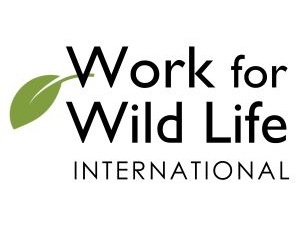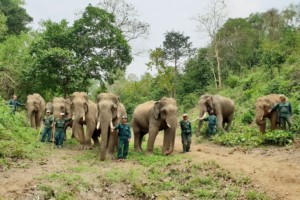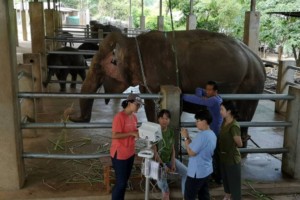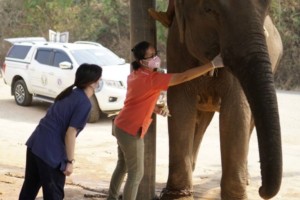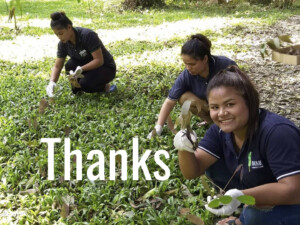Tourism in crisis: A Myanmar elephant camp & community pivot to plan B
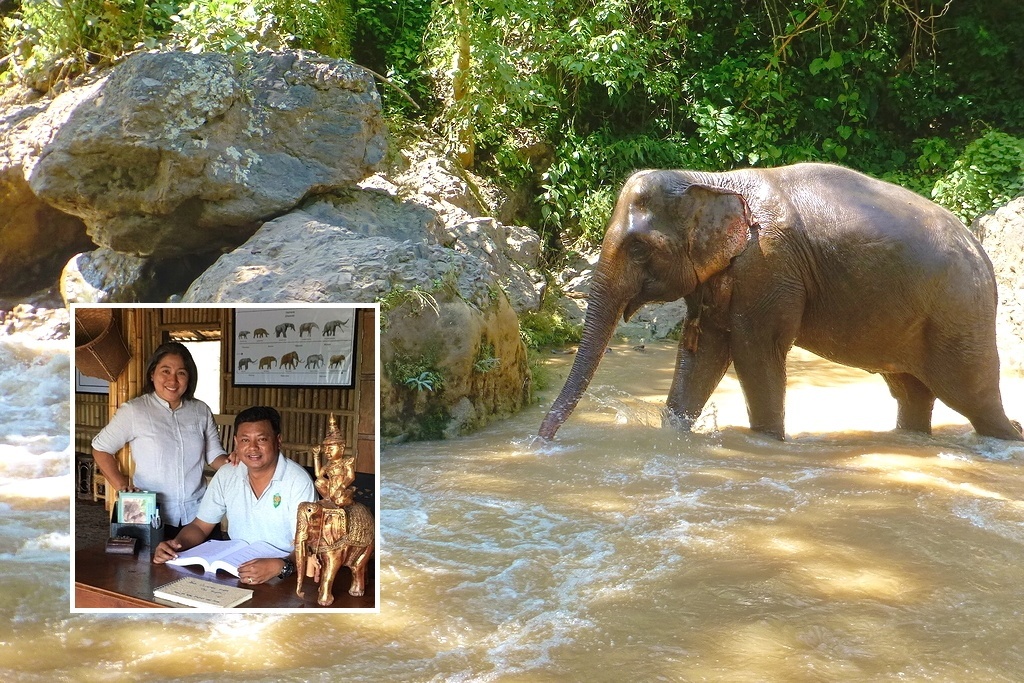
Through the COVID-19 pandemic and tourism crisis, hopes rest on contingency “plan B” to sustain the retired logging elephants of Green Hill Valley, Myanmar and the community of people who love them.
Hollis Burbank-Hammarlund of Work for Wild Life International knows them well, having led elephant healthcare and welfare workshops at the camp in 2018 and 2019. She hopes to return post-pandemic with her team of elephant experts.
Long before the deadly COVID-19 virus emerged, wife-husband team Tin Win Maw and Htun Htun Wynn (pictured in inset above) were busy growing their award-winning Green Hill Valley Elephant Camp (GHV), located in Magway village in Myanmar’s Shan state.
GHV is Myanmar’s premier elephant sanctuary where elephant welfare and forest restoration are seamlessly integrated into ethical ecotourism. It is a truly magical place — surrounded by dense forests and productive fields now lusciously green again thanks to Maw and Htun’s hard work since acquiring the stripped land in 2011.
GHV rescues and cares for elderly and injured retired elephants whose lives were once spent clearing Myanmar’s forests of timber — now an illegal activity for the most part. Maw and Htun, along with Maw’s uncle and GHV veterinarian, Ba, have spent the past decade creating a safe refuge for elephants and a nurturing home and community for mahouts, elephant veterinarians, and other GHV staff and their children.
An abiding, shared sense of place and purpose bind this group of more than 50 Myanmars in special ways that have fuelled their past success and will hopefully secure their future under the new COVID-19 regime, which has hit the tourism industry hard throughout Asia, putting the health and welfare of captive Asian elephants at risk.
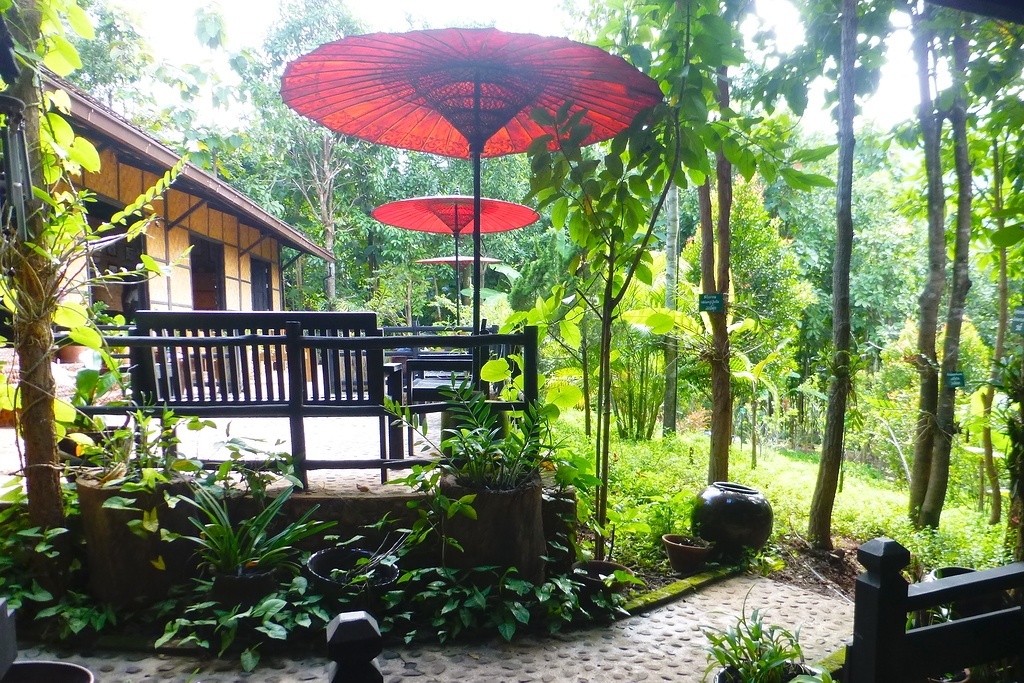
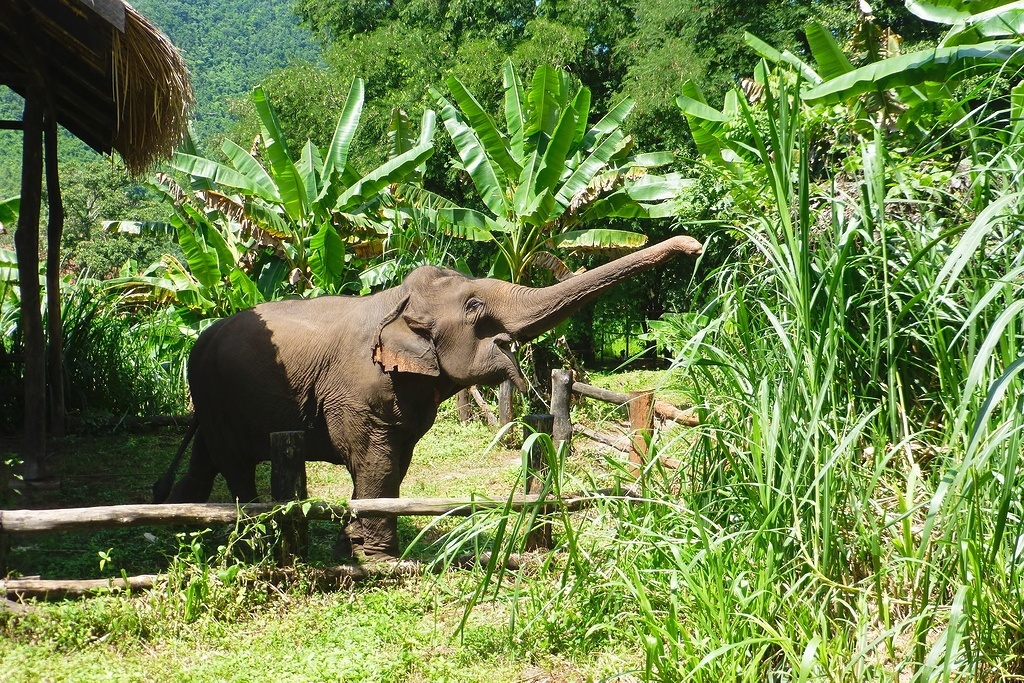
Before COVID-19, GHV welcomed up to 40 tourists daily to its camp. Travellers from all around the globe spent a busy day in the company of gentle giants and the hard-working mahouts and veterinarians who care for them. Visitors made paper from elephant dung, planted young trees cultivated in the GHV nursery, and walked with elephants along a peaceful riverside trail through the cool forest.
Visitors were treated to a scrumptious lunch prepared on-site using ingredients grown by the community of GHV families and served on an outdoor deck dotted with red umbrellas and nestled in the treetops.
They learned from Maw, Htun, and Ba about the complex interplay between humans and elephants, and about GHV’s efforts to build sustainability into its operation by creating fish ponds, raising livestock, growing fruits and vegetables, selling crafts, and hosting educational programs for regional schools — all things that enhance self-sufficiency.
Just in case.
Just in case, that is, of a downturn in the global economy or some local crisis, which could slow the flow of international tourists and thus the financial lifeblood that supports GHV’s operation. They imagined what they thought was the worst-case scenario and planned accordingly.
But who could have imagined the closing of Myanmar’s borders and a complete halt to all tourism as a result of a global pandemic? How could any tourist-related operation weather that storm, especially one with so many people and elephants to support?
I recently asked Maw how GHV is coping. Could they continue to care for their elephants and staff given the unpredictability of the pandemic? Her response, in true ‘can-do, never-give-up’ style, was this: Implement plan B. Grow. Cook. Deliver!
Community-led plan B: Grow. Cook. Deliver!
Under Plan B, GHV will continue to feed and care for all eight of its elephants and its community of staff and families. They will provide emergency healthcare services to elephants throughout the region via the GHV Mobile Elephant Veterinary Unit, as they have done since 2017. These services will not change; they are central to GHV’s mission.
Plan B also includes some small changes such as the construction of a series of new jungle camps located deep within the forest where GHV’s elephants and mahouts can safely live for extended periods of time, returning to base camp for weekly elephant health checks. This will help to save money on supplemental elephant food by allowing their elephants to freely forage for 24 hours a day rather than the usual 18.
And there are jumbo changes at GHV too.
According to Maw: “We are fully committed to sustaining GHV’s core mission of caring for elephants but we will change our trade, moving away from the international tourist business and toward a local food service business.”
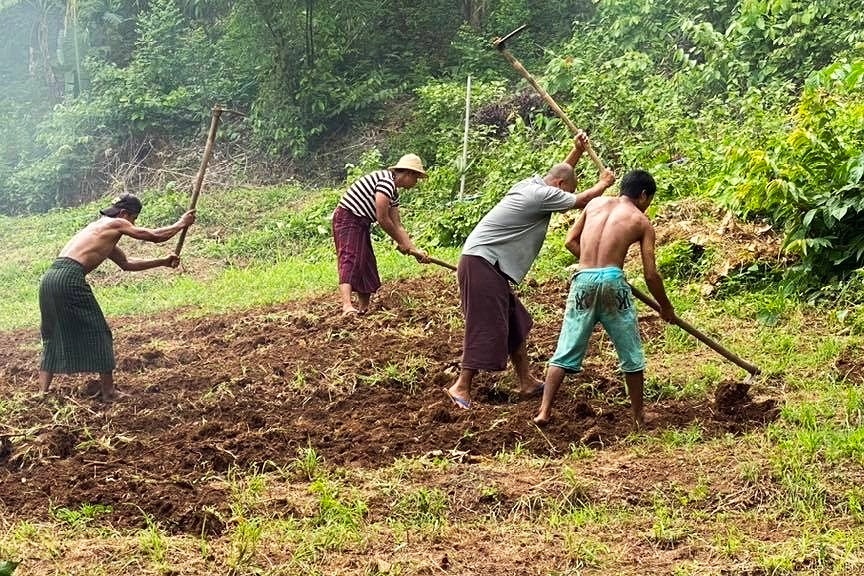
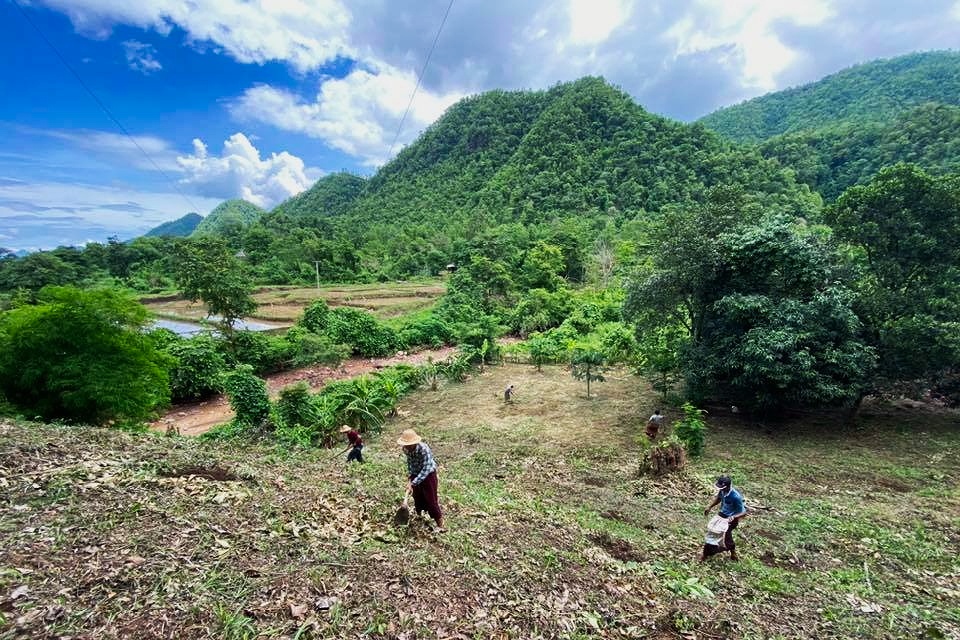
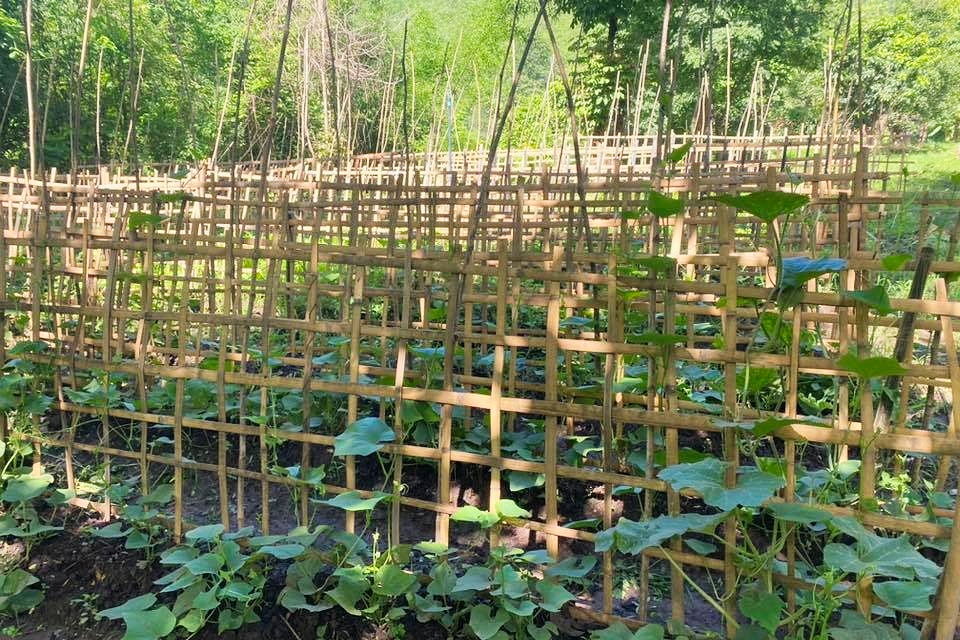
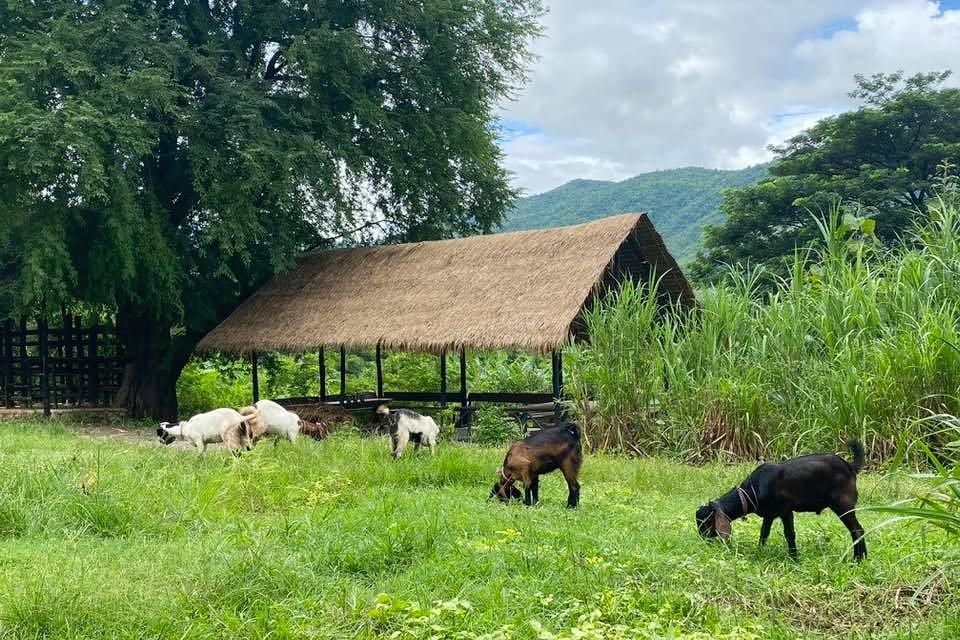
Today, GHV’s staff are busy growing more food onsite, refurbishing their kitchen facilities, preparing a new coffee bar, and taste-testing new recipes. In early October, Maw and Htun will launch a new, local food service business. Staff will prepare delicious, farm-fresh meals and deliver them to residents throughout the region, along with fresh produce.
Switching gears in this manner is a huge undertaking — the brainchild of GHV’s community of stakeholders who collectively proclaimed in a recent meeting: “We must do something and not just wait!” Working together, they hope their new elephant-inspired enterprise will provide a regular stream of income to support GHV’s operations for the next two years or more.
If you had asked Maw and Htun a year ago to predict what lies ahead for Green Hill Valley in 2020, they could not have guessed they would be knee-deep in a totally new, start-up business in the midst of a global pandemic. But, no doubt, they would have emphatically declared “business as usual” when it comes to caring for their retired elephants and the people who love them.
And so I say to my friends and colleagues at Green Hill Valley Elephant Camp, “kan-kaung-ba-zay” (good luck)!
What do you think? Do you know of similar pivots in tourism-related organisations with jumbo reponsibilities? Share a short anecdote in the comments below. Or write a deeper “GT” Insight. The “Good Tourism” Blog welcomes diversity of opinion about our travel & tourism industry because travel & tourism is everyone’s business.
Featured image (top of post): An elephant of Green Hill Valley Elephant Camp, Shan state, Myanmar. (Image by Hollis Burbank-Hammarlund.) Inset: GHV Founders Tin Win Maw (Left) and Htun Htun Wynn (Image courtesy of GHV.)
About the author

As Founder & Director of “GT” Insight Partner Work for Wild Life International, Hollis Burbank-Hammarlund telecommutes from her home office in Vermont, USA and travels to Asia for onsite work. As a project developer, fundraiser, and logistics manager, she teams up with NGOs and experts from all around the globe to support wildlife conservation and animal welfare initiatives in Indonesia, Nepal, Vietnam, Myanmar, Sri Lanka, and Thailand, with a focus on endangered elephants and orangutans.
Recent elephant-related projects include the Elephant Healthcare Emergency Lifeline Fund (2020); “Everything Elephants” (2019); ElephantCARE ASIA Workshop (2018); and EleVETS Training Program — Sri Lanka (2017). From 2011 – 2013, Hollis helped raise nearly US$750,000 to purchase and permanently protect the Rawa Kuno Legacy Forest — 7,900 acres of at-risk orangutan habitat in Borneo.


